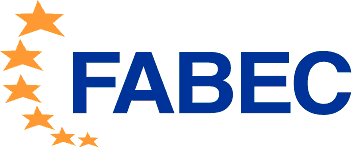Need for further analysis of weather phenomena impacting air traffic confirmed by MET Alliance investigation

The changing behaviour of weather phenomena is increasingly impacting air traffic. Thunderstorms at unusually high altitudes, changes to the jet stream and turbulences have been causing time consuming re-routings and producing delays.
Although weather phenomena cannot be influenced, the current performance scheme for air navigations services assigns weather-induced delays to the responsibility of air navigation service providers. To better understand the changing climatic conditions for air traffic and thus improve predictability, FABEC has asked MET Alliance for assistance. MET Alliance is a group of national aeronautical meteorological service providers from eight European States. The first results confirm that the topic has not been sufficiently explored today and needs further analysis.
Capacity planning and operational mitigation measures rely on trustworthy indications on capacity demand from airlines and reliable environmental information. The detailed change of specific weather phenomena and their impact on flight conditions are of high importance. Unfortunately, they are not yet fully understood. This was confirmed by a first investigation that FABEC commissioned from MET Alliance. As a further step, the issues in question have been consolidated in the cooperation framework into to a set of concrete questions.
MET Alliance will now look more into such topics as the development of thunderstorms in recent history, the evolution of the jet stream over Central Europe, changes to icing altitudes and intensity as well as the vertical and lateral evolution of turbulence. Met Alliance members are being asked if specific and concrete changes have been observed over the last three to five years. The results of the second part of the investigation are expected in the first quarter of 2018. Understanding such phenomena is an important step towards developing solid mitigation measures.
MET Alliance was formed by Austro Control, Belgocontrol, Deutscher Wetterdienst (Germany), The Royal Netherlands Meteorological Institute, Met Eireann (Ireland), Météo France, MeteoLux (Luxemburg) and MeteoSwiss.

.jpg)






.png)


Comments
There are no comments yet for this item
Join the discussion